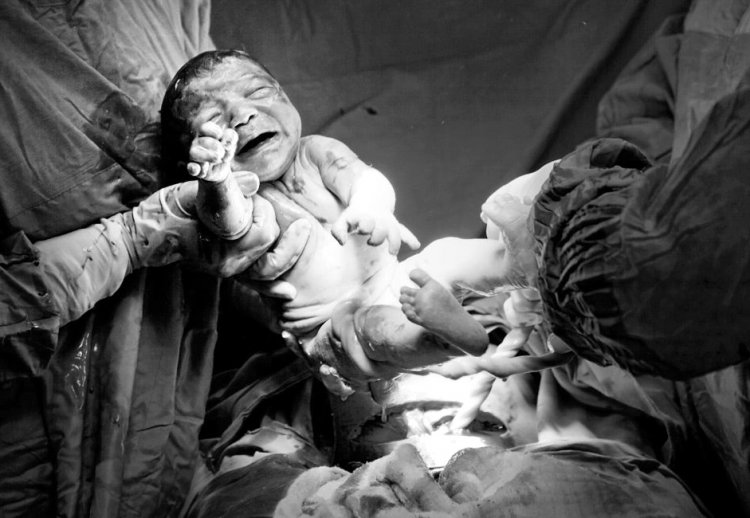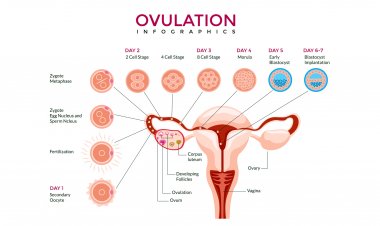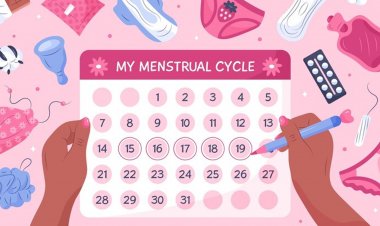Everything you need to know about C-section
Caesarean delivery or caesarean section means that your baby is born through an operation. The surgeon first makes an incision in your abdomen, then into the uterus and out that way.

Why is this done?
If you know in advance that you are going to have a caesarean, it is called an elective section. The decision to have a caesarean can be made beforehand or during the delivery, depending on the need according to your situation.
You may need it because:
- Your baby's head is too big, or your pelvis is obstructing your baby.
- Your placenta (placenta) is located too low (called placenta previa) which blocks the passage of the baby.
- You have twins or triplets.
- There may be some other complications such as previous vaginal surgery.
- Your baby is in such a position that vaginal delivery is difficult or impossible.
You may have an unplanned (called emergency) section after going into labor for the following reasons:
- Your baby may be experiencing stress (lack of oxygen) and your labor has not advanced enough to warrant a forceps or Ventus delivery.
- You have a condition called eclampsia or severe pre-eclampsia that could be dangerous for you or your baby. Pre-eclampsia is a serious condition that occurs in pregnancy and can affect both the mother and the baby. If it develops into eclampsia, early delivery may be required.
- You suddenly fall ill, or your blood pressure is too high.
- Your labor pains are increasing very slowly.
- You are tired.
- The baby is having trouble getting out because of its position in the womb and it may not have been detected earlier.
How is this done?
- You'll be given an anesthetic -- spinal or epidural -- that will keep you awake without feeling the process of your operation. Or sometimes, you may be given a general anesthetic.
- The surgeon makes an incision first in your abdomen, then in the uterus, in a straight line just above your pubic hair.
- Sometimes by hand or sometimes with the help of forceps, you may feel a slight stretch while pulling the baby out.
- Your baby's umbilical cord is cut and tied and then given to you (if you are not under general anesthetic).
- The placenta and membranes are later removed and then the doctor stitches up your incision.
- It takes about 10 minutes to deliver and then about 30 minutes to stitch up your incision.
- For a few days you may feel very tired and may even experience slight pain, especially while passing gas, as is the case with any abdominal operation.
- You will feel uncomfortable when you laugh or cough. You may be given a pain-relieving medicine that is safe to take while you are breastfeeding.
Your condition after caesarean
You may feel tired in the initial days and may be asked to stay in the hospital for a day or two longer than women who have had a vaginal delivery. Here are some other things to keep in mind beforehand:
- Discomfort from the air stored in the stomach.
- Pain in the area of the abdomen where the stitch has been done.
- Laughing or coughing may also make you feel uncomfortable (you will be told how to support your incision site to avoid any pressure while laughing or coughing).
- You may need help because of the difficulty of initially placing your baby in the right position for feeding so that you can keep him or her by your side or lying down comfortably close to your body.
- Initially, a small drain may be fitted into your body to collect any blood that comes out of the incision site. It is usually removed within a day or so. A drip may also be placed in a vein in your arm to compensate for fluid out of the body. Initially, you will not be able to stand up to urinate and so you will have to either put in a catheter or use a bedpan with the help of someone.
How would you feel
Caesarean delivery sometimes leaves women with disappointment, especially when it is unexpected. Then, if the baby is okay, they may feel guilty about their disappointment. Your friends and family think that the only thing you should worry about is the health of the baby, and when the baby is safe, why should you care about the way he came into the world? But you might feel like you missed something - so talk about your feelings with your spouse and other moms who have had a caesarean section. In time, you will understand that like other things in life, everything does not go according to plan. If you don't know why you had a caesarean section, ask, as this will help you with your feelings and make you more positive about it.

 mybabycare
mybabycare 















